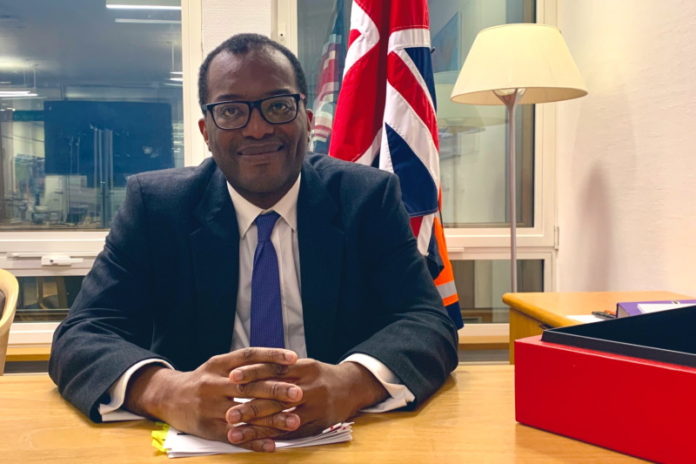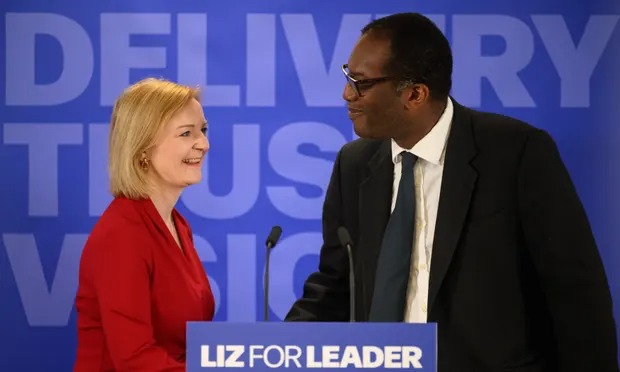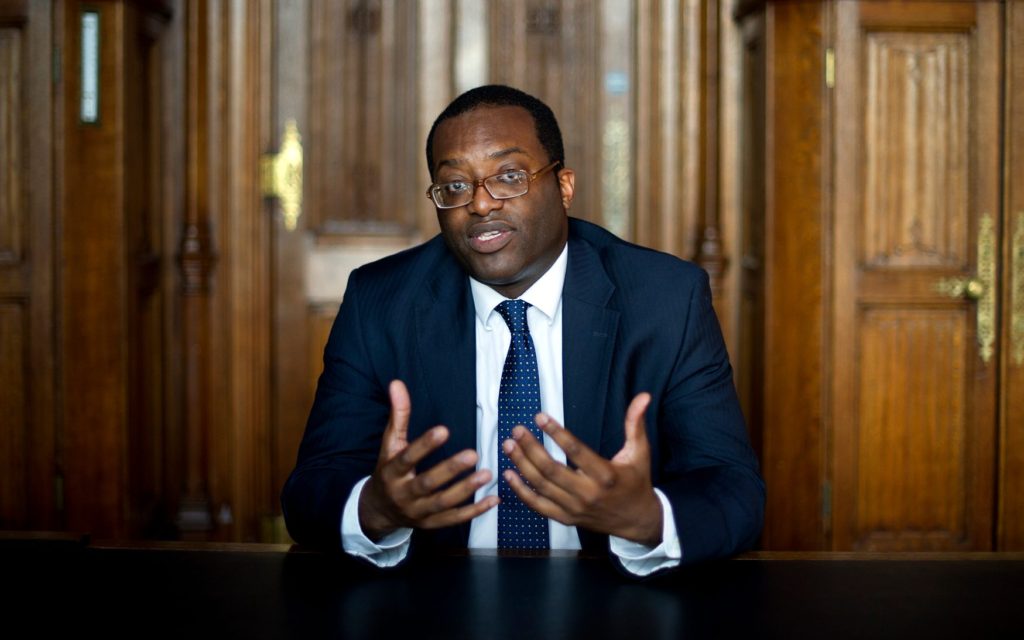Kwasi Kwarteng’s time for very high office beckons as Britain is poised for its first Black Chancellor of the Exchequer but who is behind the leading candidate?
Many of the Prime Minister’s cabinet have all lined up behind Liz Truss who will become Britain’s next Prime Minister on 5th September 2022 after a head-to-head race with Rishi Sunak.
The most energetic among them is the Business and Energy Secretary, the Rt. Hon. Kwasi Kwarteng; Truss’s most visible cabinet supporter first introduced her initially wobbly campaign to the public.
Even when she was trailing badly in the early stages of the contest among MPs, he stood by her and made her case for the leadership vigorously.
He successfully positioned an insider as the insurgent candidate. Sunak is the out-of-touch technocrat, beholden to the economic orthodoxy of an unreconstructed Treasury, and Truss, the radical reformist who would take on the establishment and follow in the footsteps of Mrs. Margaret Thatcher.
On the verge of a huge victory, attention has now turned to who Liz Truss would appoint to the most important offices of state. Of these, the Chancellor of the Exchequer is the grandest and most coveted.
Will she appoint the first Black Chancellor?
If Truss is successful, it is rumoured and indeed expected, that she would appoint her consiglieri, Kwasi Kwarteng, as the next occupant of No.11 Downing Street.
That would also make Kwarteng the first Black person to occupy the office.
Whatever your politics, this would be a moment of pride for Black people in Britain, and for Ghanaians in particular, from whose stock he hails.
His father, Albert, an economist and barrister mother, Catherine, emigrated from Ghana to the United Kingdom as students in the 1960s.
But everything else about their son is quintessentially English and of the posh kind.
Early beginnings of the putative Chancellor
Kwarteng came to national attention when he appeared on University Challenge, a popular highbrow TV quiz programme – in 1995, as part of Cambridge University’s Trinity College team.
He dazzled the audience with his competitive streak, muttering the f-word when he stumbled over questions, which prompted one national newspaper to rename the quiz show, ‘Rudiversity’ Challenge.
With his agile mind and expansive knowledge, he single-handedly helped Trinity College win the competition that year.
He had been one of 14 Kings’ Scholars at the elite Eton College where Boris Johnson, David Cameron, and 18 other British Prime Ministers were also educated.
He graduated from Cambridge University with a First in History and Classics. And he twice won the prestigious Browne medal, a gold medal in Latin and Greek poetry competition endowed to the University of Cambridge in 1774 by the English Physician, Sir William Browne.
After a brief spell at Harvard on a Kennedy scholarship, he returned to Cambridge to complete a Ph.D. in economic history.
His thesis was on ‘Political Thought of the recoinage crisis of 1695-7’.
The crisis led to monetary contraction, unemployment, and civil unrest and ultimately laid the foundations for the move away from the bi-metallic monetary system to the development of fiat money.
A slow rise to the top
Kwarteng joined JP Morgan as an investment banker and became MP for the constituency of Spelthorne in the south of England in 2010.
Almost immediately, he established his political positioning with the publication of ‘Britannia Unchained: Global Lessons for Growth and Prosperity’, a Brexiteer’s manifesto, which he co-authored with a few of the 2010 intake of MPs, including Liz Truss and Dominic Raab, who incidentally is backing Rishi Sunak.
Truss, Raab, and Priti Patel (another of the co-authors of the ‘manifesto’) have all gone on to occupy two of the great offices of state – Raab and Truss at The Foreign and Commonwealth Office and Patel, the Home Office.
Even Rishi Sunak, elected five years later in 2015, became Chancellor. Yet the most cerebral of the bunch of 2010 languished on the backbenches and later in middle-ranking ministerial positions until Boris Johnson called him to the cabinet in 2019.
Early Political Career
Considered “a rising star on the right of the party”, Kwarteng was the Conservative candidate in the constituency of Brent East at the 2005 general election.
He finished in third place behind the incumbent Liberal Democrat MP Sarah Teather (who had won the seat in a 2003 by-election) and Yasmin Qureshi of the Labour Party.
In 2006, The Times suggested that he could become the first black Conservative cabinet minister.
He was sixth on the Conservative list of candidates for the London Assembly in the 2008 London Assembly election but was not elected as the Conservatives claimed only three London-wide list seats.
His time may yet have come with his old friend Liz Truss about to become Britain’s third female Prime Minister.
Kwasi Kwarteng, if appointed, would be following in the footsteps of great British Statesmen including William Pitt the Younger, Benjamin Disraeli, William Gladstone, Herbert Asquith, David Lloyd George, Stanley Baldwin, Winston Churchill, Stafford Cripps, Hugh Gaitskell, Harold Macmillan, James Callaghan, Nigel Lawson, and Gordon Brown.
Source: Ekow Nelson




